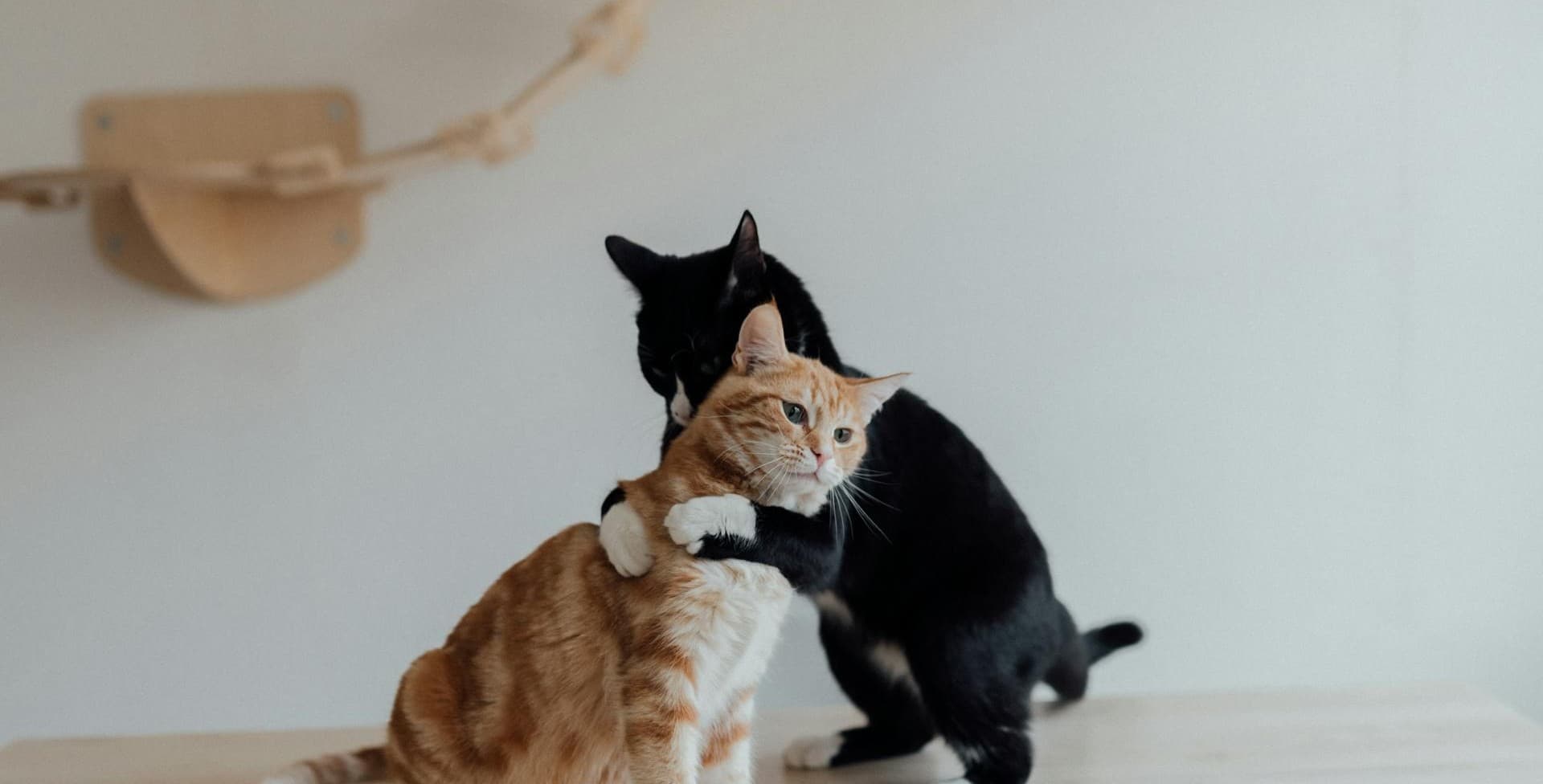There’s a lot going on behind the scenes when it comes to cat mating. Most cat owners might not be aware of these. The behaviors, sounds and even unique body structures that go into cat mating are pretty fascinating. Sometimes they are a little surprising. Mating behaviors and sounds are just nature’s way of helping cats continue their lineage. Here’s what you need to know about domestic cats mating.
The Mating Cycle of Cats
There is a whole cycle felines go through for cats mating. You have probably seen some of it up close with an unspayed female at home. This cycle happens several times a year. It depends on things like the season and daylight.
Understanding the Estrus (Heat) Cycle in Female Cats
It's mating time as soon as a feline goes into heat. This phase is officially called the estrus cycle, but most people just call it heat. During these times, she’s fertile. These episodes can last anywhere from a few days to a few weeks. For most cats, spring and summer bring on more frequent heats. It's like nature's matchmaking season for a cat for mating.
Behavior of Female Cats During Heat
If you’ve seen a female cat in heat, you know it can be intense! She might get super cuddly, rub up against anything nearby, and start “calling”—which is just a nice way of saying she’s yowling loudly for any male cat within earshot. She’ll also posture herself in a certain way. She will crouch down with her tail off to the side. It is almost as if she’s saying “I’m ready for cat sex.” It’s all completely normal. You can be a little shocked if you’re not expecting it. The VCA Animal Hospitals informs that cats urinate more often and spray vertical objects when they are in heat.
How Male Cats Respond to a Female in Heat
Male cats don’t need to actually see a female in heat to know she’s around. Just the smell alone sends them into a frenzy for cat sex. They might start pacing, spraying to mark their territory, or even getting vocal themselves. This excitement and determination can make even the laziest of tomcats turn into energetic, love-struck prowlers.
The Mating Process
When cats mate, it’s quick but intense. And they have some unique physical traits that make their mating process unlike any other. According to PetMD, kittens as young as 3 months can begin their heat cycle.
How Cats Mate: A Step-by-Step Guide
Meet and Greet. If a male finds a female ready for mating, they’ll do a little dance of sorts. The female initiates things by taking that crouching stance, signaling she’s ready.
Mounting and Alignment. The male will mount her, and the positioning is pretty specific—she’s crouched low, and he’s right on her back. This alignment helps make sure everything lines up.
The Mating Moment. This part only lasts a few seconds, but it’s intense. The male’s barbed anatomy triggers the female’s body to release eggs, boosting the chances of pregnancy.
The Aftermath. After mating, the female cat usually reacts with a quick swipe at the male before grooming herself like nothing happened. This “get away from me” swipe is normal—it’s almost like she’s resetting her space!
Mating Behaviors and Vocalizations
It’s not just the posturing that’s noticeable; cats are known for their vocalizations during mating, too. It may range from a low purr to a loud yowl. These sounds can seem alarming. They’re just part of the mating process.
Unique Physical Traits That Affect Mating: The Barbed Penis in Male Cats
Male cats come with a unique anatomy feature—a barbed penis. These little barbs may sound odd, but they serve a purpose. They help induce ovulation in the female. She’s more likely to get pregnant after just one encounter. It’s just part of how cats have evolved to make sure they reproduce.
Myths and Facts About Cat Mating
Common Misconceptions About Cat Reproduction
A big myth is that female cats need to mate for their health, which isn’t true. Not mating won’t harm them. Spaying them early can help prevent certain health issues like cancer. Spaying is actually better for your cat if you’re not planning on breeding,
The Truth About Sibling Mating in Cats
Another surprising fact is that sibling cats will mate. Cats don’t recognize family bonds the way humans do. They will not think twice about mating with a brother or sister. It is best to have any cats you don’t want to breed spayed or neutered. This is the best way to avoid accidental litters.
Can Cats Mate with Other Species?
There’s a funny myth about a dog mate with a cat, but it’s simply not possible. They’re too different genetically. Even if they show interest, there’s no chance of cat-dog hybrids running around. It’s all just a quirky fascination.
Frequently Asked Questions
How long do cats stay in season?
Cats typically stay in mating season for one to three weeks. It depends on breed and other factors.
How many days is a cat in heat?
A cat can be in heat for 4-10 days. She will often go back into heat after a short break if she doesn’t mate in the first cycle.



